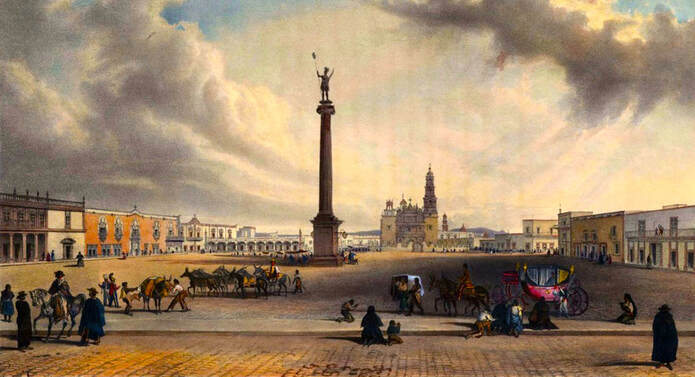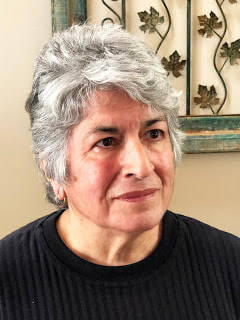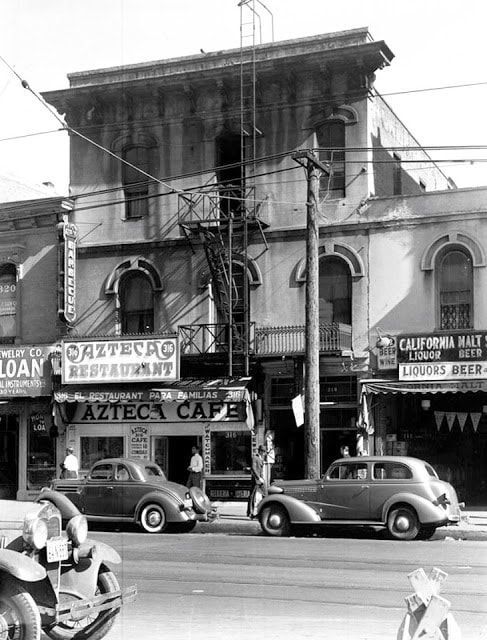“Mother's Day”by Robert G. Retana The card was made of white construction paper and had a small flower on the front drawn with crayons. Each petal was a different color, and “Happy Mother’s Day” was neatly written across the top of the card. The handwriting was that of a child but neat and precise, nonetheless. Inside the card, the words “from Victor” were written in blue ink. Victor brought it home from school right before Mother’s Day and showed it to his Aunt Dolores. “Can I send this to my mother?” he said. His words pierced Dolores’s heart because she knew how much pain this poor child carried around and how much he would suffer for the rest of his life for things he had no part in. “Yes, you can send it to her,” Dolores responded. “We’ll find an envelope for it and mail it tomorrow morning. She should get it in a few days.” “When can I see her?” Victor asked. “We can go for a visit soon. But she is in Chowchilla, a long way from here, and I don’t know how soon we can take a trip there.” “When can she come home?” “Baby, she might never come home,” Dolores responded. “But she thinks of you every day, and you can visit her there. It’s far, and we can’t go that often to see her. My car gives me a lot of trouble, and it takes forever if we take the bus.” Dolores hugged him, and he hugged her back. Then he went upstairs to change his clothes and play video games before he had to do his homework. Dolores wondered whether she would have it in her to heal this child’s heart or whether the pain he felt would become rage, and he would wind up in prison like his mother. She prayed he would not change and that God would help her know what to do to make things better. Dolores had her own two children and never expected to raise a third. But now that he was hers, she could not help but want to take care of him. No one should start off in life with so much pain and sadness. She looked at the framed picture of herself and Marisa, her younger sister, and Victor’s mother, which she kept on the living room wall. It was taken when they were little girls, four and five years old. They were clinging to their mother, who looked so happy and beautiful. She had long, brown, wavy hair and large expressive eyes, just like Marisa. Both girls were smiling and holding on to their mother for dear life. Behind them stood their father, a tall, handsome, nicely dressed man with thick black hair combed back and a neat mustache that framed his broad smile. Little did they know that soon after this picture was taken, their father would leave home and never return. People said he had another family in Mexico and decided to return there. Others said he was spotted wearing a fancy suit in the bars with a new woman by his side. Whatever the story was, they never saw or heard from him again. It was too much for their mother to take, and soon after he disappeared, she killed herself, overdosing on sleeping pills. Marisa was sent to live with her grandmother, who was too old to control her, and just prayed a lot for her salvation. Dolores went to live with an aunt who took good care of her but could not afford to take them both. The girls cried for weeks when they were separated. Although they kept in close contact, they went their separate ways in terms of lifestyle. Marisa always had boys chasing her, but she never found a healthy relationship. Men just brought her more problems. Dolores was more serious and had a stricter parental figure in her aunt. She could not run with the same crowd or tag along when Marisa skipped school or got a fake I.D. to go nightclubbing even though she was underage. Marisa quickly learned that any shyness or awkwardness she felt would go away when she had been drinking and doing drugs, and her self-esteem was boosted by the attention she got from men, even if it turned out to be more trouble than it was worth. There was always room at the parties for a pretty girl who liked to have a good time. The pain of losing their mother and father and then being separated from Dolores never seemed to lessen for Marisa. She lied, made everything seem great, and gave Dolores expensive gifts and clothes that she could not afford to buy for herself, never explaining how she got them. Marisa could never look her sister in the eye and tell her everything she was caught up in. People said she used men and women to get what she wanted. Marisa would always drive nice cars but never had a job that would allow her to afford them. She dressed in nice, new clothes and always had her hair and nails done. She looked vivacious, but when she drank, the sadness in her eyes was unmistakable. When she visited Dolores, she sometimes slurred her words like she was high but denied she had a drug problem. Dolores begged her not to use drugs when she became pregnant and feared the baby would be born with birth defects. Luckily, he was born a healthy baby boy. Marisa never said who the father was and gave the baby her last name. She named him Victor, after their father, which surprised Dolores since Marisa always said she hated him. “At least this Victor will never leave me,” Marisa explained. “He will always be mine.” Marisa cared for Victor as a baby, but as soon as he could walk, she started partying again. She would leave him with friends and family as often as she could. She would ask Dolores to watch him for a few hours and then not pick him up for a week. Marisa’s heart was not right, and having a baby did not change that. She always showed up with money, a nice toy for Victor, and a long story. Dolores knew Marisa was headed for trouble; however, she never imagined how much trouble was ahead. *** The drive home that night began in the Mission District of San Francisco. Marisa and her husband, Rob, had dinner on Valencia Street. When she took the driver’s seat of their new, black BMW 525i, she made a quick call on her cell phone and then hung up when the call was answered without saying a word. “Who are you calling?” Rob asked. “I want to see if my friend is coming over tomorrow to take me to apply for a job. But I didn’t realize how late it was, so I’ll call her in the morning,” Marisa responded. “Okay. You don’t need to work, but if you want to, if that makes you happy, then you should do it.” About half a mile away, Marisa stopped the car and said the check engine light had come on. “Don’t stop the car here,” Rob said. “This is not the best neighborhood; we can still make it home with that light on.” Just then, a car pulled up behind them. A man quickly approached the vehicle’s passenger side and told Rob to get out. He held a gun pointed at Rob. “Just do what he says,” Marisa told him. He got out of the car and tried to cooperate, not wanting any harm to come to him or his wife. Seven shots were fired as soon as he was out of the car. Three bullets pierced his skull while the rest entered and exited his chest. When the police arrived, Marisa was crying, saying that Rob was her husband and that someone tried to carjack them and they shot Rob. But the car was still there, her purse was still inside, and she was still wearing the expensive diamond wedding ring Rob gave her. Marisa said she had no idea what the suspect looked like or what kind of car he was driving. She had no bruises, although she claimed the suspect hit her and pushed her to the ground so he could take the car. Her demeanor was also strange in that she did not ask about her husband’s condition or come close to his body, maintaining her distance from the crime scene instead. At the police station, she seemed confused and a little bit disinterested. She gave a vague statement to the police but became impatient when pressed for more details. The police did not believe her from the start but had no basis for placing her under arrest. The facts, however, did not match up, as the route she took home was not the most direct route to the freeway entrance, which would lead them to the Bay Bridge and then to their home in the Oakland Hills. Something was up, and Marisa was not a persuasive grieving widow. Rob died from gunshot wounds in the ambulance on the way to San Francisco General. When Marisa was told about his death, she did not cry. She looked more dazed than sad and said she wanted to go home. The police wound up notifying Rob’s family. They would soon learn that he was a 45-year-old executive at a software company in San Jose. He was a shy bachelor for most of his life and never dated much until he met Marisa. He met her at Golden Gate Park one day, where he was walking his dog. She approached him to pet his cocker spaniel. The dog seemed to like her, and Rob let her play with him for a while so he could get a closer look at her. She had long brown hair that was pulled off her face. She was petite, had curves in all the right places, and knew how to show them off. She was someone that people noticed. She was at ease with herself and struck up a conversation with him that flowed in a way his conversations with women never did. Before he knew it, she had given him her phone number, and they agreed to meet for a drink. A drink led to her moving in with him quickly and then getting married in a civil ceremony at City Hall in San Francisco three months later. Rob bought a house in the Oakland Hills for them and gave her use of his credit cards, which she had no problem using. She bought expensive clothes, never worked again, and had frequent calls on her cell phone that she had to take in the other room. He never pressed for details of how Marisa spent her time or his money to prevent her from getting upset. In his eyes, she was a very emotional person with a strong personality and a quick temper, but also capable of moments of great tenderness. Lonely nights alone at home in front of the television with fast food seemed worse to him than putting up with her mood swings. “Everyone can think you’re successful,” he would say, “but when you end the day at home alone, it sure doesn’t feel that way.” His family warned him about her, and she hated his family, saying they thought they were too good for her. Rob tried to keep the peace and wanted to make things work no matter what. He ignored her drinking and tried to bond with her son, hoping that being a good stepfather might score some points with her. It never did. He never knew she was still seeing her old boyfriends, even after their marriage. Nor did he know or want to know who she brought to the house when he was at work. She partied with friends and lovers at home, impressing them with how she lived and telling them that she did not love Rob and would divorce him and collect alimony. They laughed and partied with her, had sex with her, but never imagined how far she would go. The pain and abandonment she felt as a child and the men who used her along the way and then discarded her had caused a change in her. She was once a sweet, sensitive girl looking for someone to love her. Now, she only cared about partying and easy money. An expensive dress, nice jewelry, and money in her pocket validated her in a way that she never felt validated by other people. The pain she felt due to repeated abandonments made her do whatever was necessary to lessen the toxic energy she carried around inside despite the party girl vibe she projected. She had no safety net, so she was not afraid to use any means necessary to get what she wanted. The drugs and alcohol eased the pain but blurred her sense of reality. Her old friends included several shady characters who fancied themselves as con artists and criminals who had gotten away with a lot, even if they wound up doing time for some of it. They would tell stories of schemes that had been successful and large amounts of money that could be made with the right planning and execution. When she told them she did not love Rob and was using him for his money, they encouraged her to get rid of him and cash in, as they were eager to keep her interested so she would continue to supply drugs and alcohol. When she was high, it all seemed to make sense, and she had a feeling of invincibility that a sober Marisa would not have. She just needed to figure out how to get rid of him without getting caught. She spent many hours thinking about how to get it done. When an attorney told her that if she divorced him, she would not be entitled to very much, given the short time they had been married, she began to think that there was no other way to cash in but to kill him. She was not leaving this marriage empty-handed. She would not return to her old life with nothing to show for the time she was married to Rob. Eventually, she persuaded Rob to agree to purchase life insurance policies and mortgage insurance for the house, with her as the beneficiary. Then, before she knew it, the drunken conversations about hiring someone to kill her husband and collect the insurance proceeds turned into a plan of action. Her ex-boyfriend, Alex, who left her several times for other women, was back in her life and was seeing her at her house when Rob was working. She seemed to forget all the times he abused her and left her without explanation. She needed his approval, even after everything he had done to her. His return meant he was wrong when choosing someone else over her. At least, that is the story she told herself each time she took him back. Each knew that even though they both looked good, their days of trading off their looks were ending, and they needed a score to set them up. Rob’s family began to ask questions about Marisa and told him to divorce her before it was too late. Rob’s demeanor towards her changed, and she found out that his parents had arranged a consultation with a divorce attorney. The end was coming, and she needed to act quickly. Marisa and Alex agreed to kill Rob on a dark street in the Mission District and make it look like a carjacking. Marisa would keep the house and the car and most of the insurance. She would give Alex one thousand dollars and the proceeds of one of the life insurance policies Rob had purchased. *** As they rode the bus to Chowchilla, Dolores and Victor tried to keep cool in the sweltering heat. It took several hours to reach the Central Valley. As the bus exited Highway 99 and went east on Avenue 24, Dolores was glad the trip was almost over. Victor needed to use the restroom, and she needed to get this over with. Some things needed to be said, and she hoped she had the strength to say them without making things worse. The bus was filled with families of prisoners who seemed anxious to get there. However, their collective enthusiasm was tempered by the realization that they were headed to prison. Above the almond trees, they could see the large complex, Valley State Prison for Women. It looked almost like a campus if it were not for the razor wire. It took them an hour and a half to work their way to the front of the line so they could be “processed.” As they passed through the metal detector, they removed their shoes and were searched by prison guards. Dolores almost did not believe they would search Victor, an eight-year-old boy, but figured they had seen it all and had no reason to trust anyone. They were assigned a visiting table, and when Dolores first saw Marisa, she was shocked. Her hair was cut short and combed back off her face like a man’s. The baggy orange pants and top were in stark contrast to the stylish way Marisa dressed on the outside. All the make-up and embellishments she thought she needed were gone, yet the beauty of her bare face was still unmistakable. “Mom!” Victor shouted when he first saw her, apparently not noticing the change in her appearance. She hugged him awkwardly and sat him right next to her. Marisa was happy to see her son and sister but was ashamed that they would see her like this. Marisa asked Victor about school and his friends and whether he was minding Dolores. He then asked her, “When will you come home?” After a long pause, Marisa responded. “I don’t know, mijo. Not for a very long time.” “Why do you have to stay here so long?” Marisa froze for a minute, not knowing what to say. When she was arrested, Victor was being cared for by a friend. Although he had visited her in county jail and had been to Chowchilla once before, she never explained why she was incarcerated. She never asked what Victor had been told by family and friends. She tried not to think about it and prayed that one day she would find a way to explain to him why she had been sent to prison. “It’s complicated,” she told him. “They said I did some bad things, and I’ll be here until the situation gets straightened out.” Tears began to fall from Victor’s eyes as he listened to his mother. He knew what she had done because the neighborhood kids had no problem telling him, having heard about it on the news. He knew Rob was dead and that his mother was the one who had him killed. He heard it many times from various people but never told anyone that he knew. This caused bouts of sadness and anxiety which made him introverted. “People say bad things about you, but I don’t care what they say,” Victor told Marisa. His voice was trembling. “I want you to come home so we can be together like before. I miss you.” Marisa did not know what to say. She hugged him until she was told to stop by a prison guard. Here, visitors may briefly embrace their loved one upon greeting and again upon exiting the visiting room. Anything more was deemed “excessive.” After a long silence, Dolores told Victor to get some food from the vending machines. She gave him several dollar bills to buy junk food, the only thing available to the prisoners and their visitors. “Bring your mom something to eat,” she told him. When he ran to the vending machines, a small line of people was waiting their turn. Dolores hoped this would occupy him for a little while so she could say what needed to be said. “He misses you so much.” “I know he does,” Marisa responded. “He writes to you and makes cards for you, and you never respond.” “You know I was caught up in the trial. Then I was sent to the reception center for ninety days to be evaluated. Then they sent me here. I had to get used to being here. It’s not easy for me. Don’t make it worse by coming here to give me head trips.” “You’re his mother,” Dolores responded. “You didn’t think about him when you were scheming with Alex. You just thought about yourself and all the things you wanted. Now those things are gone, and all you have left is a little boy that misses you.” Marisa remained silent, not knowing how to respond. “Listen, I am not here to give you a hard time. You know you can count on me to care for him and be good to him like he was my own son. But I’m his aunt, and he still needs his mother.” “What good am I to him behind bars?” “I don’t know what to tell you, but you can’t keep trying to take the easy way out. He’ll grow up angry and hate you if you keep ignoring him. You have to be a mother to him from inside here because you may never come back out. I am telling you this so your son can know who his mother really is. He’ll find newspaper articles when he gets older, and, as you heard him say, people will tell him what happened. Is that what you want him to know about you?” “But I told you, I didn’t kill him.” “Marisa, it doesn’t matter; you were mixed up in it, and Rob is dead. You were convicted. Alex testified against you to save himself. Things might have turned out differently if you had spent more time taking care of Victor instead of looking for your next score. Have any of your friends visited you?” “No,” Marisa responded. Tears began to flow from Marisa’s eyes, and she began to look at the floor. “You were the lucky one,” Marisa told Dolores. “My aunt loved you and took good care of you. My grandmother didn’t want to raise me. She did it because she had to. She always wanted to be in church. She never talked to me. She just kept telling me to get saved and accept Jesus. You have no idea how many times I have been abused. I finally decided I wanted to be the one to take advantage of others. It all made sense to me when I was using. But I know I was wrong, and I’m paying for what I did.” “I didn’t come here to make you feel bad,” Marisa responded, “but being a mother to Victor is more than just tattooing his name on your chest. He needs to know you love him and care how he is.” “I just don’t know how. My mother wasn’t around, so I never learned how.” “Well, you have plenty of time on your hands to learn,” Dolores said. Victor came running back, his hands filled with bags of potato chips, candy bars, and soda. “Mom, here are some Cheetos for you. I know you like them.” “Thanks.” “Why are you crying?” “I’m crying because I am happy to see you.” “Did you get my card? “Yes, it made me very happy. It made me have a nice Mother’s Day even inside this place.” “My teacher said I’m a good artist.” “You are. Thanks for thinking about me. It’s hard for me to write to you because I sometimes don’t have much to say. Nothing good happens here. But I will try to write to you. Send me some pictures of you when you have a chance.” “I will, Mom.” Dolores looked around the visiting room and saw several inmates who seemed to be visiting with their children and other family members. Some kids were younger than Victor; others looked like teenagers, almost ready to become adults. She thought about the amount of hurt that gets passed down from one generation to the next. She often wondered how intense the pain must have been for their mother when she swallowed the sleeping pills and made her two daughters orphans. Had she known that one of those daughters would wind up in prison for life, would she have found the strength to survive? Would she have continued to be a mother to her daughters and keep them on the right track? She wondered if Marisa had considered all the pain and sadness that Victor would endure, would she have stopped herself from getting caught up in a man’s murder? Marisa had a lot of time to think about these things while behind bars. She realized that she had left her son without a mother, much like what happened to her when she was a young girl. It was the last thing she would wish on anyone, much less her own son. Love, it seemed to Marisa, was transitory. You can’t count on it from one day to the next. Victor was the exception to that rule, yet she had ruined his life with her actions and did not know how to make it right. The guilt for what she had done to Rob and Victor was almost unbearable. Just then, Dolores saw Marisa peering at her through the brown eyes she had always used to her advantage. She was stripped of all embellishments now, and all that was left was a battered soul in prison clothes. Next to her was a little boy who looked a lot like her. His happiness at being with his mother would be replaced by tears when he was in bed tonight, knowing that his mother would probably never come home. The three of them sat silently for a few minutes, not knowing what to say. They heard the loud voices and chatter of the other inmates and visitors around them. They all seemed to know what to say and could be heard carrying on. But the three of them sat there and looked at each other, unsure how to relate to each other under these circumstances. When it was time to leave, they hugged each other tightly, and Victor did not want to let go. “Thanks for bringing him and coming to see me,” Marisa said. “Of course,” Dolores responded. “Let’s take this one day at a time. Un día a la vez.” Dolores took Victor’s hand and walked toward the exit. The Central Valley’s overwhelming heat was waiting for them outside. She wiped the perspiration from Victor’s forehead. The heat was nothing compared to all the pent-up emotions in the visiting room. “Don’t worry mijo,” Dolores said to Victor. “If there is anything this family knows how to do, it’s getting through hard times.”  Robert G. Retana is an attorney living and working in San Francisco. He is Chicano, originally from the Boyle Heights neighborhood of Los Angeles, as well as a Tribal Member of the Texas Band of Yaqui Indians. He lives with his husband, Juan Carlos, and their faithful companion, Tigre, a dachshund mix. Robert’s short story “Leaving Boyle Heights” was published in the Latino Book Review Magazine in 2021. He is a fan of the arts and currently serves as a Board Member of the Mission Cultural Center for Latino Arts in San Francisco. As a writer, he seeks to tell stories from marginalized communities that are often left untold.
0 Comments
El Parbulito |
| Gloria Delgado, born and raised in San Francisco’s Haight-Ashbury district, is the daughter of a Mexican father and a Hawaii-born Puerto Rican mother. She and her husband live in Albany, California. One of her stories, “Savanna,” was included in the Berkeley Community Memoir Project’s recently published collection, “A Wiggle and a Prayer.” This is her fourth story for “Somos en escrito.” |
**Painting of San Antonio de Padua, patron of the poor, by Micaela Martinez DuCasse, the daughter of Xavier Martinez, a well-known Mexican artist who spent much of his life in California. Ducasse also taught classes at Lone Mountain when Delgado was a student.
This story is a work of fiction based on historically documented events. All individuals with surnames, including their children, were real people; those without surnames are fictional.
In Mexico tens of thousands of residents, Indians, mestizos and españoles alike, died from intermittent plagues, smallpox, chickenpox, mumps and measles. At times there were so many deaths that the priests were too overwhelmed to comply with church regulations as to the proper listing of entries in the death records, able to note only the date of death and the names, if known, of victims who were interred on that date.
Don Augustín Diaz-De Leon’s child, Pantaleón, died in December 1747, eight months after the death of his father. Pantaleón was three years old. The youngest child, Augustín Miguel Estanislao, was born two weeks after his father’s death, on 11 May 1747. He survived into adulthood, eventually settling in Sierra de Pinos, Zacatecas, where he and Thadea Josepha Gertrudis Muñoz Tiscareño married.
Don Augustín’s widow, doña Maria Antonia Fernandez de Palos Ruiz de Escamilla and el alcalde mayor don Fernando Manuel Monrroy y Carrillo, (witness to the death of don Augustín as well as the executor of his estate) in September 1749 were granted a dispensation to marry. Don Fernando was a widower; his first wife was doña Juana Salvadora Jimenez.
Don Augustín’s father, el alférez (subaltern) don Visente Xabier Diaz-De Leon, was at this time the owner of the Hacienda de Peñuelas. Following the death of his first wife, doña Catharina Acosta, he married and raised another family with his second wife doña María Dolores Medina. Upon his death in April 1754 he left money (including 15 gold Castilian ducats) for his intentions, including 100 masses to be offered for the repose of his soul and for his servants, living or dead.
The ex-Hacienda de Peñuelas, still in existence, is one of the oldest haciendas in the Mexican state of Aguascalientes. Established sometime before 1575, Peñuelas predates the foundation of the Villa of Aguascalientes itself. This hacienda consisted of several self-supporting plantation-like communities staffed and farmed by resident Indians and slaves.
The Cathedral Nuestra Señora de la Asunción, originally known as San Ysidro Labrador, was initiated in 1704 and completed in 1738 by don Manuel Colón de Larreátegui, head of the Mitra de Guadalajara. Its northern bell tower was completed in 1764, the southern bell tower not until 1946.
Sources
All birth and death documents cited are from the following:
Church of Jesus Christ of Latter-Day Saints:
FamilySearch.com and other films on line.
The entry cited re the infant, the parbulito of this story, is from:
Mexico Aguascalientes, Aguascalientes, Catholic Church Records
Parroquia del Sagrario, Asunción de Maria
Defunciones 1708-1735, 1736-1748
El Parbulito: Image 530 [Libro quatro de Entierros]
Montejano Hilton, Maria de la Luz:
Sagrada Mitra de Guadalajara, Antiguo Obispado de la Nueva Galicia, 1999
Rojas, Beatriz, et al:
Breve historia de Aguascalientes, 1994
Topete del Valle, Alexandro:
Aguascalientes: Guia para visitar la Ciudad y el Estado, 1973
Vázquez y Rodríguez de Frias, José Luis:
Genealogía de Nochistlán Antiguo Reino de la Nueva Galicia en el Siglo XVII según sus Archivos Parroquiales, 2001
Tony Resolvo – Private Ojo
Second Installment
By Tommy Villalobos
I spent the next week thinking of her. But it went from wondering about a questionable client now gone to wondering about what a beautiful doll had come and gone. The only other person to visit me was George Itazmo, detective, Los Angeles Police and former partner of mine. George was one of those personas Jung referred to as petrified pillars of the past. George will be trying to solve a crime his last day, his last moment on earth with no change in method or approach.
“You’ll be crying to come back soon,” he said as he sat on the same chair the angel had occupied. He didn’t fill it nearly as well. Still, I listened to what he had to say. “You gave up a pension for this?”
He waved his hand around the room, his face frozen in a tragic grimace, much like the mask of Melpomene, the Greek Muse of tragedy as he tossed his Fedora on my desk as if to emphasize my sad state.
“It takes a while to get rolling. Word of mouth, you know.”
“Word of mouth is that you soon will be begging to be reinstated.”
“No, I like being free.”
“Free? Looks like you’re a slave. To poverty,” he said, now looking around the office just like…then it hit me like a sack of frijoles to the head. I didn’t know the dazzling woman’s name. I have to ask for names. Names are important in my business.
“I didn’t get her name,” I cried to the world, which happened to be represented by police detective George I. at the moment.
“Who is that?” he asked, ever the detective.
“My first client.”
“You have one?”
“Can you blame me?”
“Did her husband get himself lost and now she wants you to bring him back hog tied?”
“No.”
“Her daughter ran away con un mariachi sin vergüenza?”
“No.”
“She is a missing person but can’t remember who she belongs to?”
“To whom she belongs. No.”
“She found a man’s cold body in her bedroom and wants you to justify it being in her bedroom?”
“Close. She doesn’t want to be a cold body in her bedroom.”
George looked at me and I could hear the rusty tornillos turning in his head, rusted from all that Kentucky bourbon he had downed over the years. Then the light turned on in his alcohol-soaked head.
“You mean, someone tried to kill her?”
“No. He just whispered in one of her pretty ears that he would love to do that.”
“Subtle approach.”
“Very.”
“I have to get back. Still trying to nail a bartender and his pal who pushed some wanna-be-actress over a cliff at the end of Franklin in Hollywood. All because she didn’t want to do a romantic scene with one of them in the back seat of a car. But first, I’m going to get me a big ham sandwich at the Grand Central Market. Come along, I’ll buy.” He said this while again examining my surroundings.
“Thanks but I have to find clients. Tell you what, once I’m on my feet, we’ll go get some Barbacoa at the Azteca Restaurant on Main Street. It’s been a couple of years since I been there. And I’ll buy.”
He got up, paused then he looked at me with what looked like disenchantment. He then put on his Fedora and headed for the door then turned for a postscript.
“Be careful.”
“Why?”
He left without telling me why.
So, here I was once more alone with my problema. Should I treat this spooky woman as a victim or vampire? I needed a drink. I put on my own Fedora, grabbed my coat and headed for the door. Standing there as if materializing upon demand was the victim. Or vampire.
She, framed by the doorway again, looked at me with a smirk. Ordinarily, smirks count a lot from a wonderful-looking gal, but at the moment, I got nervous. Her smirk shot out from under another wide-brimmed hat, this one pink.
“You’re back,” I croaked in uncertain complaint.
“I came back to see if you wanted me.”
She said this while repeating her walk toward me wherein she unloaded all her sex had to offer in a walk. Her hips moved from north to south and back, while the black dress she had on was doing a dance of its own.
“It’s not a question of possessing,” I said in a fatherly tone, “it’s a question if I can help you.”
“Sure you can. Someone from long ago has come back and for some silly reason is trying to kill me.”
She stared at me as if expecting an answer quickly and expecting it to be the right one. I was at a loss. Then it hit me like the sweet aroma of a Banana Daiquiri. I could just tell her my fees, ask her name, address and anything else that came to mind. That would call her bluff. I put on my own smirk before I spoke then I proceeded to do so.
“By the way, what is your name?”
“Carmen Fiolencia,” she shot back without hesitation.
“Oh, yeah?” I said with a frown, wondering if it was her name or one she had just pulled out of the city air.
“What’s wrong with it? You don’t seem to like it.”
“I think it’s a swell name, but—“
She laid her purse on my desk with a thud and sat down empathically on my one client chair. I accepted her challenge and sat with a firm thump on my own chair. She pulled out a utility bill and handed it to me. It reflected her name and her address on Lorena Street. She then pulled out her driver’s license which also reflected the same name and address. I tried to look at the birth date but she pulled it away before I could. None of these documents had her photograph so I could not match her face to any of them.
The brim of her pink hat now shadowed her eyes but their brilliance shot out like two rounds from a .38 Special.
Okay,” I said, trying to regain control, “there is the question of money.”
“Money?” she said as if it were a new concept she had to familiarize herself with. The two blazing bolts from under her hat went dark. I assumed she had her eyes down in shame for being broke. I began to feel sorry for her, thinking of a way to tell her that she would have to move to another part of the planet to avoid being murdered, which would be cheaper than hiring me.
For Installment 1, click: Tommy-WhisperofDeath

Archives
July 2024
June 2024
April 2024
March 2024
November 2023
August 2023
July 2023
June 2023
May 2023
April 2023
February 2023
January 2023
December 2022
November 2022
September 2022
August 2022
July 2022
June 2022
May 2022
April 2022
March 2022
February 2022
December 2021
November 2021
September 2021
August 2021
July 2021
June 2021
May 2021
April 2021
December 2020
September 2020
July 2020
November 2019
September 2019
July 2019
June 2019
May 2019
April 2019
March 2019
January 2019
December 2018
November 2018
October 2018
September 2018
August 2018
June 2018
May 2018
April 2018
March 2018
February 2018
January 2018
February 2010
Categories
All
Archive
Aztec
Aztlan
Barrio
Bilingualism
Borderlands
Boricua / Puerto Rican
Brujas
California
Chicanismo
Chicano/a/x
ChupaCabra
Colombian
Colonialism
Contest
Contest Winners
Crime
Cuba
Cuban American
Cuento
Cultura
Culture
Curanderismo
Death
Detective Novel
Día De Muertos
Dominican
Ebooks
El Salvador
Español
Español & English
Excerpt
Extra Fiction
Extra Fiction Contest
Fable
Family
Fantasy
Farmworkers
Fiction
First Publication
Flash Fiction
Genre
Guatemalan American
Hispano
Historical Fiction
History
Horror
Human Rights
Humor
Immigration
Indigenous
Inglespañol
Joaquin Murrieta
La Frontera
La Llorona
Latino Scifi
Los Angeles
Magical Realism
Mature
Mexican American
Mexico
Migration
Music
Mystery
Mythology
New Mexico
New Mexico History
Nicaraguan American
Novel
Novel In Progress
Novella
Penitentes
Peruvian American
Pets
Puerto Rico
Racism
Religion
Review
Romance
Romantico
Scifi
Sci Fi
Serial
Short Story
Southwest
Tainofuturism
Texas
Tommy Villalobos
Trauma
Women
Writing
Young Writers
Zoot Suits
Donate and Make Literature Happen
is published by the Somos En Escrito Literary Foundation,
a 501 (c) (3) non-profit, tax-exempt corporation. EIN 81-3162209








 RSS Feed
RSS Feed